
Chemist
June 12, 2023 · Abhirami M S.
WHO IS A CHEMIST?
Chemists conduct experiments in labs in order to analyze substances, develop new products or improve existing ones. They may specialize in one or more areas, such as organic chemistry, inorganic chemistry and biochemistry.
WHAT DOES A CHEMIST DO?
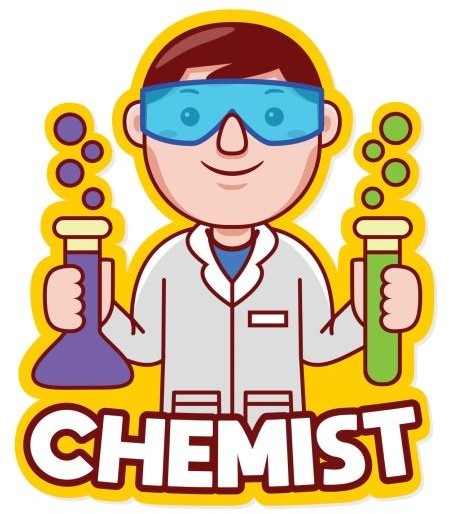 If you’ve ever taken any kind of medicine or used a body lotion, you’ve personally seen the work of a chemist. But, a chemist’s job isn’t limited to pharmaceuticals and cosmetics. They also work in a wide range of industries such as energy, manufacturing and the food industry. They also work in R&D departments as chemist engineers or as teachers in educational institutions
If you’ve ever taken any kind of medicine or used a body lotion, you’ve personally seen the work of a chemist. But, a chemist’s job isn’t limited to pharmaceuticals and cosmetics. They also work in a wide range of industries such as energy, manufacturing and the food industry. They also work in R&D departments as chemist engineers or as teachers in educational institutions
But what exactly are the duties of a chemist?
That usually depends on the exact role. In general, chemists analyze organic and inorganic compounds, refine substances and test chemical products. Their role is to improve the quality of products and procedures while ensuring safety.
DUTIES OF A CHEMIST
- Conducting experiments using proper lab equipment
- Preparing and testing solutions
- Analyzing and reporting on test results
JOB BRIEF
We’re looking for a chemist to join our team and help us build safe, high-quality products. You will conduct various tests on chemical products, analyze their compounds and refine their composition.
To be successful in this role, you’ll need extensive knowledge of techniques like distillation, crystallization and titration and hands-on experience with spectrometers and chromatographers. You should also be comfortable writing technical reports and analyses of your findings.
If you enjoy spending most of your work time in a lab and feel at home inside the lab and enjoy the thrill of experimentation, keeping great attention to substances, chemical reactions and temperatures, we’d like to hear from you.
RESPONSIBILITIES
- Prepare solutions by weighing ingredients and dissolving and diluting substances
- Analyze organic and inorganic compounds to determine their composition
- Conduct qualitative and quantitative experiments taking into account the volume and structure of ingredients
- Customize formulas and use different reagents to test chemical reactions
- Write technical reports of the test results
- Develop nonstandard tests for chemical products
- Maintain lab equipment and troubleshoot or report on malfunctions
- Refine chemical products to improve their quality
- Ensure compliance with laboratory health and safety guidelines
- Sterilize equipment and store materials in secure places
REQUIREMENTS AND SKILLS
- Previous experience as a chemist
- Laboratory work is a plus
- Hands-on experience with spectrometry and chromatography instruments and techniques
- Good knowledge of laboratory health and safety standards
- Excellent analytical and research skills
- Attention to detail
- BSc in Chemistry
- Additional certification (Master’s degree or a PhD) is a plus
WHAT DOES A CHEMIST DO? (Duties, Skills and How to Become)
Updated 26 January 2023
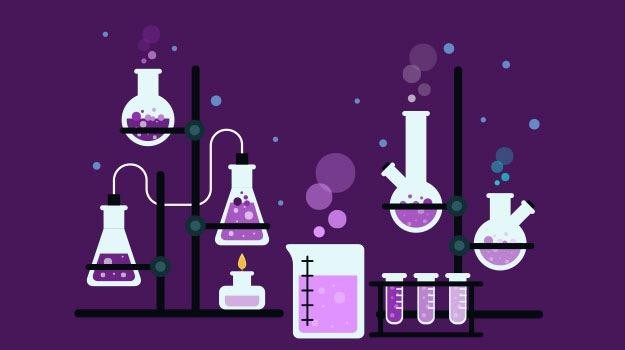
Chemists conduct experiments at laboratories and analyze chemical substances. They may specialize in one area or in diverse fields, like biochemistry and inorganic or organic chemistry. If you like working in a lab, finding out the chemical compositions of different substances or developing new products, then you may be interested in this job role. In this article, we answer, "What does a chemist do?" and discuss in detail what a chemist is, the duties and responsibilities of chemists and how to become one.
These are some of the duties carried out by a chemist:
- Conducting qualitative and quantitative experiments using lab equipment
- Preparing and testing solutions
- Analyzing and reporting test results
- Helping build safe, high-quality products
- Conducting tests on chemical products and analysing their compositions
- Preparing chemical solutions
- Analyzing organic and inorganic compounds to determine their composition
- Writing technical reports of test results
- Maintaining lab equipment and troubleshooting or reporting malfunctions
- Refining chemical products to improve their quality
- Ensuring compliance with laboratory health and safety guidelines
- Sterilizing equipment and storing materials in secure places
WHAT IS A CHEMIST?
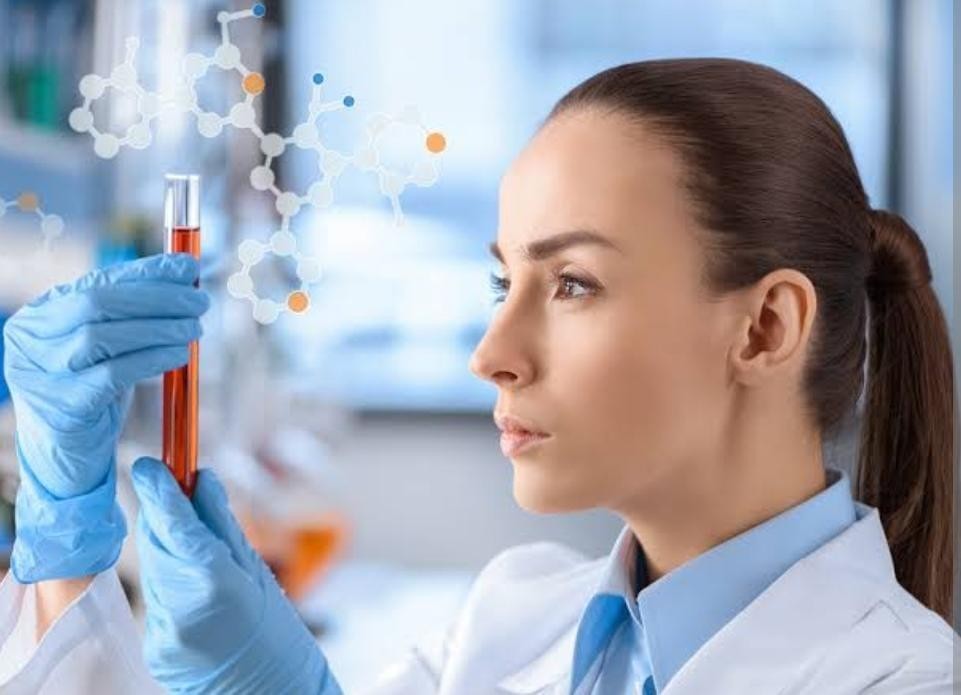 Chemists are individuals who conduct experiments in laboratories to analyze the chemical and physical composition of different substances. They develop new products or improve existing ones. Chemists may investigate the properties of matter at a deeper level to figure out facets of its composition. They may assess proportions, refine substances, test chemical products and measure reaction rates of substances to identify familiar and unfamiliar substances.
Chemists are individuals who conduct experiments in laboratories to analyze the chemical and physical composition of different substances. They develop new products or improve existing ones. Chemists may investigate the properties of matter at a deeper level to figure out facets of its composition. They may assess proportions, refine substances, test chemical products and measure reaction rates of substances to identify familiar and unfamiliar substances.
Chemists analyze how elements behave and may also be responsible for creating new compounds. These compounds come to use in a variety of practical settings, including everyday usage. To accomplish these, chemists use analytical tools, instrumentation and advanced computer software. A chemist typically works as part of a research team. In the pharmaceutical industry, chemists are usually involved in developing drugs and studying their properties to determine the quality and efficacy of medicines. Their main role is in this domain to enhance the quality of products while ensuring safety for consumers.
WHERE DO CHEMISTS TYPICALLY WORK?
Chemists contribute towards developments in drug formulation, quality control, product testing, validation and toxicology. Chemists are employed in pharmaceutical institutions, the food industry, the cosmetics industry, the chemical industry and government laboratories. They may also work in research and development departments or as teachers in academic institutions.
Neurochemistry, biochemistry, nuclear chemistry and theoretical chemistry are some of the areas in which a chemist can specialize. Some chemists may even find employment in forensic science labs to help gather and assess evidence for criminal investigations. Experienced chemists may be involved in preparing documentation for product license purposes.
TYPES OF CHEMISTS
Here are some specializations which a chemist can choose from:
1. Quality control
Quality control chemists may be responsible for analysing raw materials and final products to ensure that the quality and purity meets the standards set by an organisation. These chemists may work closely with the manufacturing team in order to detect and solve issues that may occur in the manufacturing process.
Quality control chemists may also analyse returned products and provide technical support for consumers. Working in the quality control field requires you to be detail oriented and diligent.
2. Industrial research
Chemists who are working in the industrial field may carry out chemical tests on different products. They can be responsible for creating, testing and developing new products or chemical substances that can be used in the everyday lives of people, like ceramics, fibres, petrochemicals and fertilisers. They may also be tasked with improving existing products in order to increase their efficiency to meet customer demands. Industrial chemists may provide technical support and training to customers or staff members when necessary.
3. Forensics
Forensic chemists work in a lab to run tests and analyse samples collected by investigators. They may often be employed by government institutions to analyse trace samples from crime scenes or identifying the presence of unknown materials or drugs. In many instances, forensic chemists may testify to their findings in court as expert witnesses. They may use a variety of experiments and methods, including microscopy, optical analysis and gas chromatography. They carefully write reports that are used to support criminal investigations.
SKILLS OF A CHEMIST
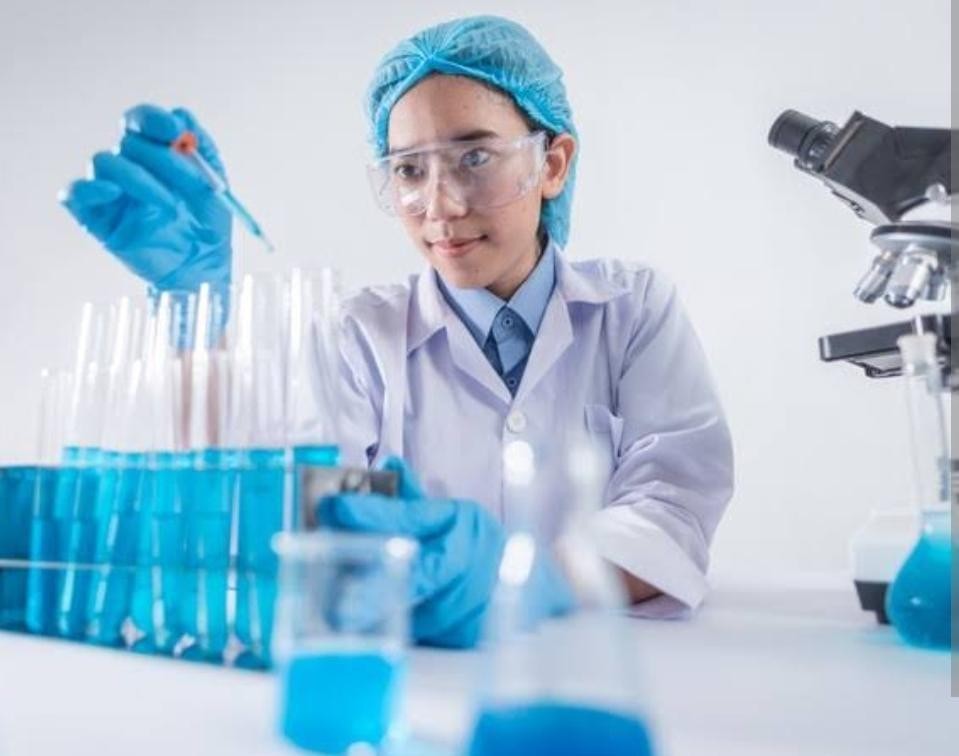 If you are interested in becoming a chemist, consider developing the following skills:
If you are interested in becoming a chemist, consider developing the following skills:
Knowledge of chemistry: A chemist may have an extensive knowledge of chemistry. They may have an extensive understanding of techniques like crystallization, distillation and titration in addition to hands-on experience in working with equipment, like spectrometers and chromatographs.
Mathematical skills: Having a foundational grasp of mathematics is a useful tool for chemists. They may use this in a variety of functions like making dilutions, mixing solutions, analyzing molecular structure and predicting rates of reactions in experiments.
Scientific temper: Chemists may have to use formulas, methods and equations in their experiments. They may have a substantial grasp over scientific subjects, which help them sustain a successful career in this field.
Communication skills: Chemists may require good written and oral communication skills. They may prepare technical reports or communicate details of their experiments and findings to colleagues or upper management.
Problem-solving skills: A chemist is a professional who may be faced with challenging tasks. They may assess a problem statement, interpret it, understand the science behind it and come up with possible remedies.
Attention to detail: Another important skill for a chemist to possess is attention to detail. They work on quantitative analysis and formulation, where being meticulous can ensure that results are precise.
Analytical thinking: Analytical thinking may be very important for a chemist who works in the research area or in the pharmaceutical industry. They may have to assess a problem from different angles and evaluate solutions before coming to a conclusion.
Interpersonal skills: A chemist may typically work as part of a team, with whom they may have to collaborate to conduct experiments or carry out research. The ability to work well with others can be an important skill to ensure that work progresses smoothly.
HOW TO BECOME A CHEMIST
Follow these steps to become a chemist:
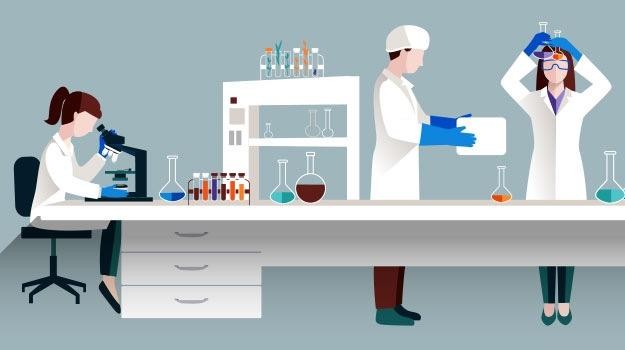
1. Graduate from higher secondary school
Candidates aspiring for a career as a chemist can graduate higher secondary education with a focus on science subjects like chemistry, physics, biology and maths. These subjects form an excellent knowledge base for their higher education and academic experience. Chemists are generally experts in chemistry and related subjects, so it is important that they develop a good fundamental understanding of these subjects from the beginning.
2. Earn a bachelor's degree
After higher secondary education, candidates can gain admission into a college providing a bachelor's degree in chemistry or pharmacy. There are colleges that provide both these courses. A candidate may pass a national level or state level entrance examination to gain admission to these colleges. Some of the most important entrance examinations are NPAT (NMIMS Programs After Twelfth), WBJEE (The West Bengal Joint Entrance Examinations Board) and KEAM (Kerala Engineering Architecture Medical). After clearing an entrance examination, you can enroll for a B.Sc. (Bachelor of Science) in chemistry or pharmacy.
3. Pursue internships
Try to participate in an internship program while studying. This provides you with relevant work experience, guidance and mentorship from experienced chemists.
Internships are an excellent method for gaining hands-on knowledge and an awareness about recent developments in the field. Some of the popular
institutions where you can do an internship are Bhabha Atomic Research Centre, JNCASR (Jawaharlal Nehru Centre for Advanced Scientific Research) and IISER
(Indian Institutes of Science Education and Research).
4. Apply for jobs
Experience is crucial for a chemist. Relevant work experience can give you an insight into your career options and can improve your employability for future job applications. With experience and advanced education in the form of a master's or a doctorate, chemists can become lead researchers. While applying for jobs, try to highlight the details of your internship experiences, past research projects and any technical report writing experience.
5. Further your studies
Build your specialization in one or more branches of chemistry by continuing formal education and gaining relevant industry experience. You can pursue a master's and then a PhD in a specialization of your choice. This may increase your employability, as employers may prefer candidates with experience and a master's degree in a relevant field. For research-related roles, you may require a PhD in a relevant domain.
Quick Enquiry
To know more about Associated Chemicals feel free to send a message
 Our Sister Concerns
Our Sister Concerns 


Usefull Links
Get In Touch
Assochem Chambers, Bypass, Edapally,
Kochi-682024, Kerala, India.
Phones : +91 9495999349, +91 9388610189, +91 484 2339190, +91 484 2348028
E-mail : nsn@assochem.in, marketing@assochem.in, mail@assochem.in
Support

















